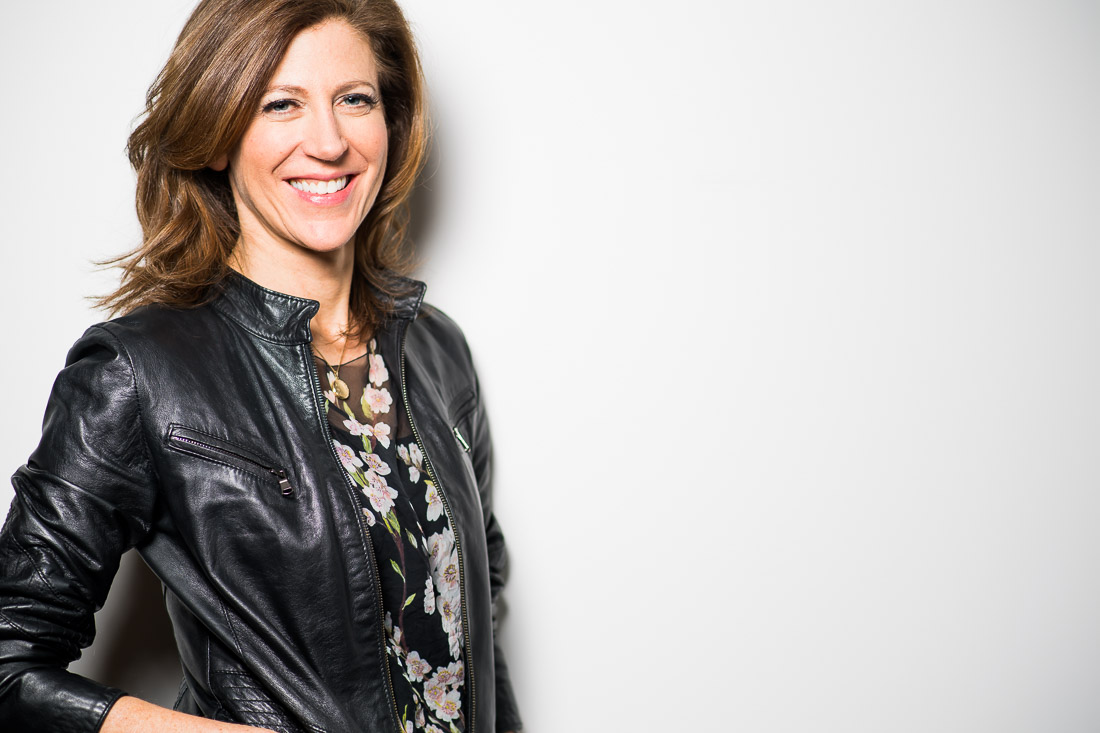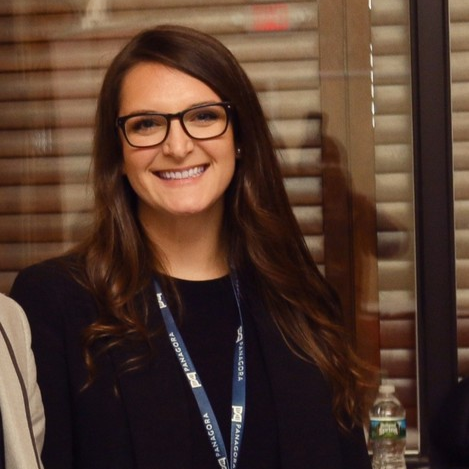
With over a decade of experience in the oncology space, we know how to support and empower cancer patients. We’re disrupting the old paper pamphlet model with digital patient education and engagement programs that prioritize health literacy and communication preferences.

ARCHES’ software platform is HIPAA compliant and integrates with all EHR systems in market, allowing for secure, reliable exchange of patient data to deploy personalized health education and resources across multiple communication channels. Benefits have included improved patient preparation and understanding, reduced patient fear and anxiety, streamlined clinical workflow at the point of care, and improved adherence to appointments and treatments.

Behind every great SaaS product, there’s a great team. From developing and curating compelling content, architecting business rules, providing top notch customer service to analyzing data for actionable insights, ARCHES is more than a software platform provider—we’re a true partner.

Daniella’s passion for patient engagement, data driven marketing and
analytics has been the driving force in her career. She believes that if we can harness the power of
education and positive relationships, we can help make the world a healthier place.
A successful serial entrepreneur, mentor and speaker, Daniella's goal is to think outside the box,
remain agile, and focus on the results.
She has been honored with awards such as Top 50 NJBIZ Women and collectively her companies have earned over 60 industry awards for innovative work in the digital patient engagement space. Daniella enjoys coaching startup founders and is an active mentor with EO (Entrepreneur Organization) and HBA. In her spare time, Daniella is a competitive ballroom dancer and mother to two adult kids, who are also exploring the world of entrepreneurship.
Healthcare
How education and communication improve treatment plan ownership and adherence
Healthcare has come a long way in the last 5-10 years. The development and implementation of Electronic health records (EHRs) has been on the rise, especially with the enactment of the American Recovery and Reinvestment Act, which encourages all public and private health care providers to demonstrate “meaningful use” of interoperable, certified EHRs for electronic ex-change of health information in a way that improves quality and safety, care coordination, and en-gagement with patients, among other quality of care requirements. Read More
Healthcare
Astellas Oncology Announces 2019 C3 Prize® Finalists
NORTHBROOK, Ill., Sept. 30, 2019 /PRNewswire/ -- Astellas Pharma US, Inc. ("Astellas") today announced the finalists for its fourth annual C3 (Changing Cancer Care) Prize, a challenge that funds the best ideas beyond medicine to improve cancer care for patients, caregivers and their loved ones. The C3 Prize will award up to $200,000 in total grants and resources, including an opportunity to attend TEDMED 2020. Read More!
Healthcare
Arches Technology: Forging Better Patient-Provider Relationships
In the face of growing diseases and treatment discoveries, it is important for oncology healthcare personnel to provide health information to patients and caregivers that can be easily understood. Previously, when people wanted to learn about their conditions or needed to discuss their treatments and the doctors they were consulting with another person, they had to take it to public forums. As consumers started taking their healthcare matters into their own hands, there arose the need for a dynamic interaction between the patients and the physicians to learn as much as possible regarding their health conditions and the likely remedies. Read More!
Healthcare
New Podcast: Empowering Cancer Patients with Education
We’re using EHR integration to deliver patient-specific content and enhance the patient experience throughout their cancer journey. In this recent episode of HealthFurther’s Future of Health podcast, our CEO, Daniella Koren, discusses the importance of pushing vs. pulling content, the value of trust for clinicians and patients, content automation tools, and the evolving role of the EHR in today's healthcare industry. Check it out!
Healthcare
New Podcast: State of the Art Patient Engagement
We’re using EHR integration to deliver patient-specific content and enhance the patient experience throughout their cancer journey. In this recent episode of HealthFurther’s Future of Health podcast, our CEO, Daniella Koren, discusses the importance of pushing vs. pulling content, the value of trust for clinicians and patients, content automation tools, and the evolving role of the EHR in today's healthcare industry. Check it out!
Healthcare
Crafting Patient Education to Serve Different Learning Modalities.
Health educators intend to provide information to patients and caregivers that is easily understood, and more importantly can be recalled and acted upon. That's never been easy, but has and will continue to become more challenging in the face of growing disease and treatment discovery. As diagnoses become fine-tuned with greater specificity, so too are diagnostic and treatment protocols becoming more precise and diverse. Read more
Healthcare
Reducing Fear & Anxiety for Cancer Patients is Possible.
There is a saying that goes, "the only thing certain in life is uncertainty," and although not particularly comforting, this point becomes underscored for us in healthcare. Many of us do our best to live into “healthy” habits - not smoking, eating clean, drinking in moderation and working out. I’m a firm believer in healthy lifestyle and always have been, however at the same time realize that there are no guarantees in terms of life expectancy and possible health issues we might encounter despite our very best efforts. Read more
Healthcare
Arches Technology Appoints Seasoned Health Tech Executive Patrick Flavin as President
NEW YORK, October 17, 2018 (Newswire.com) - Arches Technology today announced the appointment of Patrick Flavin as its President. Arches Technology is a healthcare technology company with an integrated portfolio of HIPAA compliant software products that connect healthcare providers with patients to deliver just-in-time content to patients at key points along the health journey. Read more
Healthcare
How Isolation Impacts Those Suffering With Rare Disease
There’s little in life as jarring as being diagnosed with a serious disease like cancer or diabetes; the news irrevocably changes the lives of both the patient and their family. Yet as difficult as it is, there are many avenues to get information and connecting with others who are dealing with a similar challenge. But for those who learn that they have an illness that is so rare most people have never even heard of it, the scenario can be quite different.
Read moreHealthcare
Marketers Can Help Bridge Gap For Parents, Patients, Caregivers
Any change can be daunting. But for a pediatric patient with a rare disease who is faced with transitioning into adult care, it can be exponentially more intimidating. While parents have often painstakingly developed a support system over the years of managing their child’s care, transition programs that guide young adult patients are scarce. In fact, according to the National Survey of Children with Special Healthcare Needs, more than 50% of the parents reported that no one ever spoke to them about the upcoming need for their child to switch to adult care.
Read moreHealthcare
Blogger Outreach 101 For Healthcare Marketers
The days of influence marketing solely backed by celebrities or public figures are long gone. Today, people publish their own opinions and find their voice online by publishing blogs that carry influence of the same caliber, if not more. Bloggers can engage on a personal level, strengthening influence with their audience, and in fact we are seeing higher engagement rates in some cases vs. paid advertising. But how do health marketers create an “influencer campaign” and where to start? When considering outreach to bloggers for a potential partnership, think about the following considerations:
Read moreHealthcare
What Millennials Want When It Comes To Healthcare
In just the last year, Millennials (adults ages 18-34) have become the largest generation in the U.S. labor force, officially surpassing Gen Xers, according to an analysis of U.S. Census Bureau data by the Pew Research Center. The healthcare industry needs to take notice, as this group of young people presents new and distinct challenges.
Read moreHealthcare
5 Insights To Boost Support For Rare-Disease Communities
I’ve had the privilege of talking to those touched by or living with rare disease. This post reflects on statistics and insights gained from patients, caregivers and healthcare providers.
Read moreHealthcare
5 Best Practices For Personalizing The Call Center Experience
Healthcare is evolving into a value-based system, with patient satisfaction tied to reimbursements and penalties. And, it’s evolving quicker than you might think. Value-based reimbursement is no longer the future of healthcare, a pilot project, or some far off place where the healthcare system will one day be. That day is today and there are significant financial stakes that hinge on patient satisfaction.
Read moreHealthcare
How Telemedicine Is Propelling Change Around The Hospital Experience
Telemedicine will no doubt increase patient engagement, because patients who receive care when and where they want are more motivated to participate in self-care. And on the provider side, being able to identify what is important to the patient and providing those services will go a long way to establishing a partnership outside of the office visit. From reviewing medical records to charting treatment plans, from reading x-rays to home healthcare, telemedicine is making healthcare more available to everyone.
Read moreHealthcare
How The Internet Of Things Is Changing The Future Of Healthcare CRM Strategy
Customer relationship management (CRM) is here to stay and is at the heart of companies' digital initiatives for years to come, Gartner said in a report that came out in 2014. The hot topic in CRM across multiple leading industries, including healthcare, is the Internet of Things (IoT) as it joins cloud, social, mobile and big data as the fifth driver of CRM investments.
Read moreHealthcare
Educating Patients About Surgical Recovery: When, And How?
Educating patients about what to expect after surgery needs to start in the weeks beforehand. By helping patients understand what their surgery involves and preparing them both for the procedure and recovery, providers can improve patient satisfaction and make a real difference in how patients perceive their entire surgical experience and results.
Read moreHealthcare
Patient Portals And Missed Opportunities
As value-based care becomes common practice, healthcare organizations are working to increase patient engagement—but are current engagement strategies getting the job done when it comes to improving outcomes long term?
Read moreHealthcare
Shared Decision-making: It Takes Two
According to the Agency for Healthcare Research and Quality, “Shared decision making is a model of patient-centered care that enables and encourages people to play a role in the management of their own health. It operates under the premise that, armed with good information, consumers can and will participate in the medical decision-making process by asking informed questions and expressing personal values and opinions about their conditions and treatment options.”
Read moreHealthcare
Prehabilitation-Improving Outcomes Proactively
One area where outcomes-based care is having a huge impact is orthopedic surgery. According to a 2014 study published in the Journal of Strength Conditioning Research, the projected number of total knee replacement surgeries for 2016 is 1,046,000—in 15 years, this number is projected to increase by 600%. While rehabilitation is important for improving outcomes in this type of procedure, the groundwork laid before the surgery—with prehabilitation—can make all the difference for patients’ recovery.
Read moreHealthcare
The Synergy Between Call Centers And Population Health
Healthcare is evolving from a fee-for-service and volume-driven model to one that is value based. The Centers for Medicare & Medicaid Services has stepped up its timeline for shifting Medicare to a value-based system so that by the end of 2016, at least 30% of fee-for-service Medicare payments will be tied to value through accountable care organizations or bundled payment arrangements. By the end of 2018, that number will increase to 50%.
Read moreHealthcare
Call Centers - Filling The Gaps In The Patient Care Continuum
A report in Healthcare IT News, “Strategies to Maximize Patient Engagement and Retention,” observed that the healthcare industry is evolving to a model where patients are approaching their healthcare as consumers. As a result, patients’ expectations of an “exceptional care experience” are requiring that providers start engaging patients not only during office visits, but throughout the care continuum. To achieve this end, the single most important component is communication.
Read moreHealthcare
Patients And Physicians On Using Technology And Sharing Information
Technology is advancing how medicine is practiced, giving patients the chance to participate more fully in their healthcare. These new developments have the potential to elevate the provider-patient relationship, and are being welcomed, for the most part, by both groups.
Read moreHealthcare
The Waiting Room Is Prime Time For Patient Engagement
The waiting room is often the place where patients spend the majority of their time during a visit to their doctor. According to a Software Advice survey of 5,000 U.S. patients, the average time patients wait before seeing a doctor is 20 minutes, and sometimes this wait can be a lot longer.
Read moreHealthcare
Would You Recommend This App?
According to industry estimates, 500 million smartphone owners worldwide use at least one health or wellness app. Within the next three years, 50% of the more than 3 billion smartphone and tablet users will have downloaded mobile health apps.
Read moreHealthcare
Healthcare Trends To Watch For In 2015
Tech-savvy consumers, the Affordable Care Act, and competitive new companies entering the healthcare industry are all contributors to changes that will be affecting patients, providers, and payers in 2015.
Read moreHealthcare
Patient Access to EHRs - How Much Should Doctors Share?
The use of electronic health records (EHRs) is now standard operating procedure in many medical practices, but access to them is a bone of contention. While many patients want to be able to read and add to their records, doctors may not be comfortable with this.
Read moreHealthcare
Helping Patients Get The Most From Patient Portals
While patient portals can't replace an in-office visit, they have many benefits: They encourage patients to view test results and health records and can facilitate an ongoing doctor-patient dialogue. They can reduce paperwork by serving as online billing and payment centers. They can also help practices meet meaningful use Stage 2 requirements, which state that providers must have "at least five percent of their patients using an online patient portal" to get incentive payments.
Read moreHealthcare
Using Patient Education To Stop The Hospital Revolving Door
According to the Centers for Medicare and Medicaid Services (CMS), about one in five Medicare patients discharged from a hospital is readmitted within 30 days. In an effort to change this, in 2009, the CMS began publicly reporting hospital readmission rates for certain conditions, and the Affordable Care Act contains multiple payment reforms intended to promote hospital efforts to address and prevent adverse events after discharge. Chief among these are financial penalties for hospitals with above-average readmission rates for certain illnesses.
Read moreHealthcare
Finding Time For Patient Education: 4 Tips For Healthcare Providers
It’s not news to doctors that an important part of their job is educating their patients about their health and medical conditions. The problem is that a meaningful interaction takes time—one thing that doctors don’t have. A 2013 Medscape survey found that the largest group of physician responders spent between 13 and 16 minutes per patient.
Read moreHealthcare
4 Barriers To Patient Engagement And How To Overcome Them
We can all agree that empowering patients to engage in their healthcare is a good thing. Improving patients’ understanding of their disease and health so they take a more active role in their healthcare has been shown to lead to better health outcomes and reduced costs.
Read moreHealthcare
Tips For Improving Written Communication To Patients
To help patients proactively manage their health, many healthcare providers supplement what they tell patients during appointments with written content. This may include printouts of educational material about their condition, healthy lifestyle tips, or hand-written notes about the patient’s condition and treatment plan. Physicians may also refer patients to websites or social media sites, or send emails with additional information.
Read moreHealthcare
5 Tips To Help Healthcare Providers Improve Patient Empowerment
Which patient is likely to have the best outcome: The one who puts their health entirely in their doctor’s hands, or the one who is empowered to help manage their own health?
Read moreHealthcare
Top 4 Ways To Help Patients With Shared Decision Making
The Affordable Care Act (ACA) identifies patient engagement as an integral part of quality in accountable care organizations. In fact, a separate section (3506) of the ACA calls for new Shared Decision-Making Resource Centers to help integrate the approach into clinical practice.
Read moreHealthcare
Patient Engagement: It's More Than You May Think
Patient engagement is a very popular term right now. But what exactly is it? As part of Meaningful Use Stage 2 requirements, healthcare organizations will be making important decisions about how to improve access to patient data using health information exchanges and online patient portals. However, successfully engaging patients and meeting the requirements may not be synonymous. To truly impact patient behavior and motivate positive health changes requires a comprehensive strategy for patient engagement that includes a thoughtful and tailored approach.
Read moreHealthcare
Being A Good Patient Marketer – A Short List
Daniella Koren, Founder and President of DKI, CEO of ARCHES Technology, and co-founder of Convergence Point Media, is being honored as one of the 50 best business women in New Jersey. This award is produced by NJBIZ, New Jersey’s premiere business news publication, and sponsored by Wells Fargo, WithumSmith+Brown, PC, Comcast Business, and Wolff & Samson PC.
Read moreHealthcare
What Is Responsive Relationship Marketing?
Responsive design is about giving people a great experience, no matter what device they use. Healthcare expert Daniella Koren says it’s time to bring that principle to relationship marketing.
Read moreHealthcare
Building Relationships With Content Marketing
My last post introduced the concept of Responsive Relationship Marketing: the practice of listening first and communicating subsequently, allowing segmentation and tailoring to emerge dynamically. Just as responsive design is about creating engaging content for a proliferating number of devices, Responsive RM is about creating engaging content for proliferating patient and caregiver needs. At the core, a CMS (Content Management System) is being called upon to serve and respond to user interactions, while organic segmentation is borne out of the “dialogue.”
Read moreHealthcare
Why Preparation Is Everything When It Comes To Positive Patient Outcomes
Patients not only need medical care but also emotional and educational support from their healthcare team. Treatment can be a daunting experience, but a good medical team can assuage patient fears for an easier healing experience.
Read moreHealthcare
Content: Create Or Curate?
We’ve all heard the phrase “content is king,” but in the world of inbound marketing has our definition of “Content” changed? Ninety-one percent of B2B marketers use content in their marketing mix and a majority use social media to distribute content. While content creation has always been a force in marketing, trends show companies shifting towards content curation. But can curation provide accurate, targeted information or are we sacrificing informational effectiveness for cost effectiveness?
Read moreHealthcare
Caregiver Content Is A Win-Win-Win
The caregiver has become a primary target audience for healthcare marketers, especially in the oncology and rare disease spaces. Often clients ask whether the content we provide to patients is sufficient for caregivers, too. Our answer is – not always. As we study attitudinal variations in patients, we must also determine caregiver types and how to support them during this challenging journey.
Read moreHealthcare
Social Listening for Pharma RM: Lessons Learned When No One Is Talking About Your Brand
We recently completed the first phase of a yearlong social listening project for one of our clients. It’s a global project, spanning seven countries and includes “listening in” on all of the popular social media channels – Twitter, Facebook, Sina Wiebo (a hybrid of Twitter and Facebook in China), YouTube, and countless blogs and forums.
Read moreHealthcare
Dancing Into Business
Miss Wanda was my first ballet teacher. I was four years old. She seemed ancient and held a long stick in her hand as she taught. I wonder now how old Miss Wanda really was back then. I remember wanting to please her, probably because she’d poke or tap us with her stick when we weren’t doing something right.
Read moreHealthcare
Data - It's The New 'Creative'
One of the hottest marketing catch phrases of 2012 is "data is the new creative." The premise is that all of the creative in the world won't help you if your decisions aren't data driven.
Read moreHealthcare
Social Media: A Game-changer For Relationship Marketing
For the past 12 years, my focus and interest has been Relationship Marketing, specifically Patient Relationship Marketing. It has been the allure around building, segmenting, and leveraging a database of qualified patients, usually suffering from disease states where they could benefit from high quality information. DTP and healthcare RM has been an interesting integration of disciplines, converging to create measurable marketing initiatives that demonstrate ROI for brands and businesses.
Read moreHealthcare
Pharma Needs To Learn To COPE
2012 has been a year of innovation in mhealth, wellness and prevention start-ups, a focus on EMR and patient/doctor communications, and much discussion about big data.
Read moreHealthcare
The Perfect Drug
What once would have once sounded like the plot of a 1950’s science fiction novel is now the future of modern medicine — soon, our medications will not just treat our conditions, they’ll be tailored to our individual genomes. Accompanying this gigantic leap into limitless potential will be a new era for health care. The FDA is referring to it as “personalized medicine,” and it’s going to change everything.
Read moreHealthcare
Are Our Results Good? Find Out If Your Engagement Rates Stack Up
Relationship marketing (RM) programs are powerful tools that help consumers make educated healthcare decisions. We have been creating and evaluating RM programs for over 10 years. Since the beginning, we have placed an emphasis on measuring results to ensure that programs are successful and provide robust ROIs.
Read moreHealthcare
What Problem Is Pinterest Solving?
Recently at a meeting, we were talking about the healthcare boards that have popped up on Pinterest. As we discussed the idea of creating a way for oncology patients to find others like themselves on Pinterest, and share inspirational pins, one of the clients turned to me and asked, “What problem are we trying to solve?” An interesting question, indeed. At first I answered – “we are not solving a problem; rather we are embracing an opportunity.”
Read moreHealthcare
Pump Up The Volume On Email Strategy For Building Relationships In Healthcare
Yes, e-mail has gone through phases in healthcare marketing since 2001, but, no, it is not going to be obliterated. Email remains one of the “meat and potatoes” means of communication between healthcare brands and consumer targets.
Read moreHealthcare
All The Gear, But No Idea
I recently went on a hiking trip in New Zealand where one in our group had the most expensive gear: boots, clothing, poles, backpack. Despite his lavish equipment, he was always the last one to arrive at the destination and, ultimately, injured himself to the extent that he couldn’t finish the trip! We all chattered about the guy with “all the gear, but no idea.”
Read moreHealthcare
What Do Patients Really Want?
In today’s fast-shifting patient-centric world, do we know what patients with serious diseases really want when it comes to information about their health? And are pharmaceutical companies listening?
Read moreHealthcare
12 Things About People With Chronic Conditions You May Not Know
For years, many myths about chronic patient care and communications have hobbled our ability to offer the optimum supportive information. Through years of work with leading healthcare companies, I have identified some truths about patients and caregivers that may surprise you.
Read moreHealthcare
Relationship Marketing At The Speed Of Social
The speed of social rules the day. We traverse platforms faster than we can blink an eye. Can social channels get any faster or more amalgamated? I’m sure. So how do healthcare brands keep up with the speed and intensity of relationships that are being formed in a variety of channels by consumers and healthcare professionals? How can brands form ongoing and valued relationships with their customers?
Read more
Tommy Zambelli is the VP, Marketing & Customer Success at ARCHES Technology. He has over 18 years of experience in advertising/direct marketing. For the past 13 years, he has worked across numerous disease categories, launching over 22CRM programs for multiple brands. Tommy has extensive experience working on launch products across CRM, web, and print. Prior to joining ARCHES, he worked with Draft FCB and Doremus. Tommy holds a BA from Pace University.

Yogesh Verma is the VP, Technology at ARCHES Technology. He spearheads the technical design and system architecture for our website design initiatives as well as for our cloud-based healthcare Campaign Management Software platform, which enables easy development and management of communications to enhance the patient journey. Before joining ARCHES, Yogesh served as Senior Software Engineer at Compro Technologies and he holds an Engineering degree from Lucknow University in India.

Erika is the Project Manager for ARCHES Technology. She has over eight years of project and product management experience in software development, digital marketing and health law. As ARCHES’ primary client contact and coordinator for the technology team, she has managed the development and launch of numerous CRM and patient education program updates across various disease states. Before joining ARCHES, Erika served as Project Manager for a digital agency called Pictoric and worked as a paralegal in medical malpractice and patient advocacy. She holds a BA from The University of Texas, and is pursuing her Masters in Public Health from NYU.
Copyright © 2019 ARCHES Technology
222 Broadway, 19th Floor, New York, NY 10038